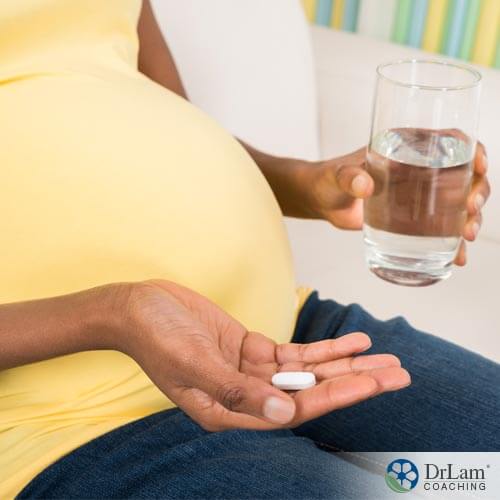 There is cause for hope and cause for worry regarding both male and female fertility these days. On the one hand, new medical interventions have made possible what was previously impossible - helping women get pregnant long after the decline of their fertility using procedures like IVF and egg donations. On the other hand, there really seems to be a general decline in sperm count, seminal volume, and sperm concentration, especially among men in the West. These issues have given rise to a lot of interest in natural fertility supplements and herbal tinctures. But declining fertility is not the only reason people are researching their options – many couples nowadays are postponing having children until later in life, as they pursue their careers and give themselves more time to travel and create financial stability.
There is cause for hope and cause for worry regarding both male and female fertility these days. On the one hand, new medical interventions have made possible what was previously impossible - helping women get pregnant long after the decline of their fertility using procedures like IVF and egg donations. On the other hand, there really seems to be a general decline in sperm count, seminal volume, and sperm concentration, especially among men in the West. These issues have given rise to a lot of interest in natural fertility supplements and herbal tinctures. But declining fertility is not the only reason people are researching their options – many couples nowadays are postponing having children until later in life, as they pursue their careers and give themselves more time to travel and create financial stability.
Being more mature parents has its pros and cons. Though it can have an effect on egg quality and fertility health, and you may have less energy to handle children than those who are younger, the plus side is that more mature parents have more life experience that can help them better handle some of the challenges that life with young children brings, as well as more financial and career stability on average.
Whatever the reason, the need for different methods to prolong and increase fertility is huge, and there are several factors that need to be taken into account when creating a fertility plan. If you have been trying to conceive, or are planning on trying, it is important to have all the information you need to give yourself the best chance for a healthy pregnancy and delivery. And, thankfully, there are a few things you can do to support that.
This article focuses more on female fertility, though a few recommendations for men will be touched on as well.
For women, a good fertility plan will depend on a few factors that you need to take into account:
Each of these factors affects all the rest, and so it’s important to take a holistic approach when talking about fertility. Your hormones, which are arguably what most people focus on when talking about conception and pregnancy, are affected by your age, diet, exercise, stress, and environment directly.
This is especially so when talking about the hormone circuit in the NeuroEndoMetabolic (NEM) Stress Response. The NEM is your body’s global response to stress. And if you have an existing chronic condition, such as an autoimmune disorder, diabetes, or Adrenal Fatigue Syndrome (AFS), your hormones will be directly involved not only in your fertility, but also in your health and wellbeing as you deal with these conditions.
Let’s take a look at some of these factors to determine how you can approach them with fertility supplements.
 For women, the biological clock is a big issue when it comes to fertility and having children, and not only physically. Many women feel pressured to make a decision about family planning earlier than they’d like, and sometimes earlier than they feel ready to. It can be a stressful situation to be in, especially if you’re building your career in a competitive field and if your partner is not ready.
For women, the biological clock is a big issue when it comes to fertility and having children, and not only physically. Many women feel pressured to make a decision about family planning earlier than they’d like, and sometimes earlier than they feel ready to. It can be a stressful situation to be in, especially if you’re building your career in a competitive field and if your partner is not ready.
Women are born with a finite number of eggs. You have between one and two million eggs when you are born, and they die within your ovaries in large numbers. By the time you hit puberty, you only have about 300,000 left. Around 500 of these remaining eggs go into ovulation, while the rest die out with the coming of menopause.
One of the reasons for the decline of fertility with age is due to the loss of eggs over time. And once your stores are gone, there is no way to conceive unless you get an egg donor.
In addition to the loss of eggs, there are several theories as to why female fertility declines with age:
The fact that IVF using donated eggs has a relatively high success rate tells us that egg quality along with the right fertility supplements is an important factor in fertility. But what affects egg quality in the first place?
Again, there are a few theories as to why egg quality declines with age:
The mitochondria are basically the energy-factories of the cells. They are what take glucose and turn it into ATP, the energy currency of life, and that is what fuels your entire body. With age, these mitochondria begin to weaken. This is why a new controversial IVF procedure focuses on transplanting the mitochondria from younger cells into more mature oocytes.
Oxidative stress happens when there are more free radicals in the system than antioxidants capable of neutralizing them. This increases with age as well as from an unhealthy lifestyle, illnesses, and exposure to toxins. Carbonyl stress is the cumulative effect of oxidative stress in a high glucose environment.
Telomeres are the caps that protect the ends of chromosomes from damage. With age, they begin to shorten, which increases the risk of DNA damage. Oocytes, like other cells, contain your DNA.
Though androgens are called the “male hormones”, women have them too, and when there are higher amounts of androgens than estrogen in your body, they get converted into estrogen. A decrease in androgen levels occurs with age, and it brings with it low libido, fatigue, bone loss, and a decline in egg quality.
Estrogen is produced in the ovaries, adrenal glands, and fat cells. The hormones associated with egg health and fertility supplements are intimately linked with several hormonal axes that are part of the hormonal response of the NEM: the hypothalamic-pituitary-adrenal (HPA) axis, the hypothalamic-pituitary-gonadal (HPG) axis, and the ovarian adrenal thyroid (OAT) axis.
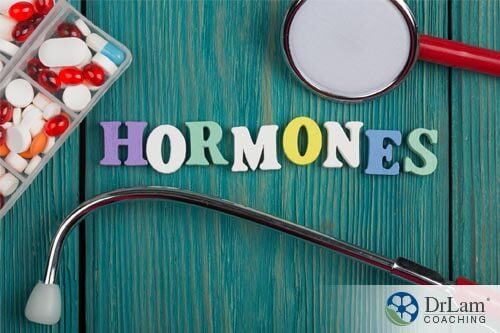 The ovaries, thyroid, and adrenal glands are arguably the most important glands for female hormone balance, and they are all part of the NEM’s hormonal response in women. The hypothalamus in the brain is the control center that manages the adrenal and ovarian hormonal systems.
The ovaries, thyroid, and adrenal glands are arguably the most important glands for female hormone balance, and they are all part of the NEM’s hormonal response in women. The hypothalamus in the brain is the control center that manages the adrenal and ovarian hormonal systems.
The HPA acts as a hormone cascade beginning with a signal from the hypothalamus to the pituitary gland to secrete ACTH, which then stimulates the adrenal glands into releasing adrenal hormones that cannot be replaced with fertility supplements, such as cortisol. Cortisol is the body’s main anti-stress hormone, and it is responsible for regulating blood pressure and blood sugar levels, maintaining heart and blood vessel function, suppressing the immune system, and neutralizing inflammation.
When the adrenals are functioning well, they secrete the amount of hormones needed to deal with stress, and any excess is then taken as a signal that the stress has been neutralized and the adrenals don’t need to secrete anymore. The body then goes back to a state of homeostasis.
When there is a lot of stress for a long period of time, the adrenal glands get overworked, and you can eventually develop adrenal fatigue. In the beginning stages of AFS, cortisol levels rise. Cortisol is a pro-aging hormone, and higher rates of infertility in women have been correlated with follicular cortisol/cortisone ratios. In men, high levels of cortisol and ACTH have been correlated with testosterone inhibition, and the loss of glutathione and free sulfhydryl in semen.
Though cortisol is necessary and healthy when in balance, imbalances can eventually create serious problems. Though in the early stages of AFS you may not really notice many symptoms, the negative effects are already beginning.
As the condition progresses into the more advanced stages, cortisol levels begin to drop, and you will begin to feel symptoms. These can include fatigue, quick weight gain (especially around the belly), difficulty losing weight, low energy, difficulty waking up in the morning, difficulty falling asleep, waking up in the middle of the night, brain fog, anxiety, mild depression, frequent colds and flus, sugar and salt cravings, increased sensitivity to certain foods and medications, and heart palpitations. Fertility supplements are not suggested to take when dealing with adrenal fatigue.
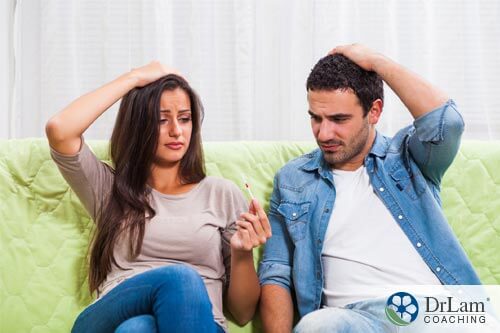 First, the adrenal glands are part of the NEM’s hormonal response, together with the thyroid and reproductive organs (female ovaries and male testes). When the adrenals dysregulate, the thyroid slows as well. Because the thyroid is what regulates the speed of the stress response, when its function declines, fatigue follows.
First, the adrenal glands are part of the NEM’s hormonal response, together with the thyroid and reproductive organs (female ovaries and male testes). When the adrenals dysregulate, the thyroid slows as well. Because the thyroid is what regulates the speed of the stress response, when its function declines, fatigue follows.
In this state of fatigue, the body begins to prioritize certain functions over others in order to conserve energy. Reproduction takes a back seat, and the OAT axis can become disrupted, which brings with it many problems of infertility. Your libido drops, your menstrual cycle gets disrupted, you can begin to lose hair, you experience more PMS, you get more estrogen dominance, and eventually, a state of infertility can arise. It can also increase the risk of miscarriage. Clinically, multiple miscarriages in the first trimester are a classic sign of underlying adrenal weakness.
But it’s not just one directional. If the thyroid is the gland that malfunctions, perhaps due to Hashimoto’s thyroiditis, which is a very common autoimmune condition, it can affect the adrenal glands. An issue with ovarian hormonal imbalance, such as estrogen dominance, can also affect the adrenals and thyroid.
So, it is important to make sure all three are in good shape in order to maximize fertility, and fertility supplements that help strengthen these different organs can bring balance to overall health.
Estrogen dominance is a very common, yet a barely addressed imbalance that has very real health consequences for women and their fertility. It is one of the main causes of OAT axis dysregulation. Some of the symptoms of estrogen dominance include swollen breasts, swollen ring fingers, fluid retention, brain fog, irregular menstruation, fatigue, depression, irritability, impatience, a “bossy” attitude, stomach cramps, PMS, and eventually PCOS, fibrocystic breast disease, endometriosis, fibroids, and breast cancer.
If you’re healthy, your estrogen and progesterone keep each other in check and in balance, as they play different roles. Estrogen causes the endometrium to proliferate, while progesterone maintains the secretory endometrium. Estrogen stimulates breast tissues, which can lead to breast cancer, while progesterone protects against fibrocystic breasts and breast cancer. Estrogen increases body fat, while progesterone helps use fat for energy. Estrogen reduces vascular tone, while progesterone restores it.
Although both of these hormones decline naturally with age, the problem is that, for most women that are not taking fertility supplements, progesterone tends to decline at a faster rate than estrogen, creating a relative estrogen dominance state. The estrogen in the body is dominant in comparison to progesterone even though labs might say they are both in normal ranges.
There are certain factors that keep the levels of estrogen higher, such as exposure to excessive environmental estrogen, stress, bad diets, sedentary lifestyles, obesity, and some types of hormone replacement therapies that don’t keep estrogen in check. Thyroid dysfunction and adrenal dysregulation can also lead to estrogen dominance and other hormonal imbalances.
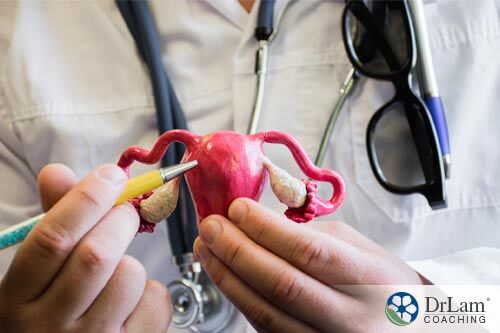 Almost every problem created by estrogen dominance can be a sign or a cause of infertility. And almost every problem that causes estrogen dominance can also cause infertility. We’ve already discussed adrenal fatigue and thyroid dysfunction as causes of infertility and estrogen dominance. But endometriosis and PCOS are also two very common causes of infertility.
Almost every problem created by estrogen dominance can be a sign or a cause of infertility. And almost every problem that causes estrogen dominance can also cause infertility. We’ve already discussed adrenal fatigue and thyroid dysfunction as causes of infertility and estrogen dominance. But endometriosis and PCOS are also two very common causes of infertility.
Endometriosis is when the lining of the uterus spreads to other places, such as the abdomen, ovaries, fallopian tubes, bladder, bowels, and vagina. It can create adhesions between organs as it grows. About 30% of women with endometriosis suffer from infertility.
PCOS, or polycystic ovary syndrome, is another common hormonal disorder that creates small follicles in the ovaries that prevent them from releasing eggs, which can cause infertility as well as metabolic syndrome, type 2 diabetes, miscarriages, premature birth, inflammation in the liver, and other problems. Those with PCOS may have elevated androgen levels. Other factors that increase the risk of developing PCOS include high insulin levels, hereditary factors, obesity, and inflammation.
Some fertility supplements and herbal tinctures can help with androgen balance and estrogen-to-progesterone balance, but it’s first very important to get a proper diagnosis before taking any supplements, and that may not be the easiest endeavor as not many mainstream medical doctors or labs are trained to check different hormonal responses and how they interact. A functional medical professional, preferably specialized in fertility, is your best option.
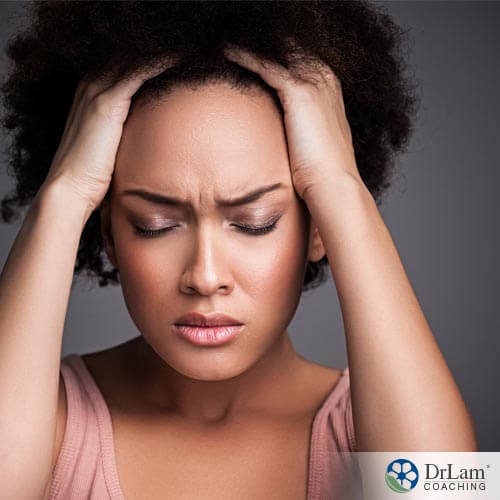 As you consider fertility supplements, it is also important to be aware of the role of stress in your overall health and ultimately in your fertility. If you go to your regular doctor with some of the symptoms outlined, the main focus areas will most likely be your ovaries and your thyroid, while your adrenals are usually neglected. But the adrenals affect both and are usually the first in line to dysregulate when there is stress. That’s because they are also the first in line to respond – cortisol is your body’s most potent stress fighter. But because they also secrete over 50 other hormones, when they are exhausted, the rest of your hormonal systems suffer too.
As you consider fertility supplements, it is also important to be aware of the role of stress in your overall health and ultimately in your fertility. If you go to your regular doctor with some of the symptoms outlined, the main focus areas will most likely be your ovaries and your thyroid, while your adrenals are usually neglected. But the adrenals affect both and are usually the first in line to dysregulate when there is stress. That’s because they are also the first in line to respond – cortisol is your body’s most potent stress fighter. But because they also secrete over 50 other hormones, when they are exhausted, the rest of your hormonal systems suffer too.
This is why it is extremely important that you address AFS as part of your fertility plan. For example, stress is a cause of the accumulation of free radicals in the body, which leads to oxidative stress, and then carbonyl stress if there is a high glucose environment in the body, both of which negatively affect oocyte health.
AFS recovery can help with fertility and the balancing of the hormonal response of the NEM because it incorporates many of the different changes you need to make to have healthy hormones and healthy eggs.
The first part of AFS recovery is to find ways to reduce and manage stress. If the stress is psychological in nature, there are several different ways to address it. Therapy, meditation, adrenal breathing techniques, mild exercise, group support, journaling, and exercises that help bring heart-rate variability into a state of coherence are all great ideas.
You’ll also want to get a lot of rest and good quality sleep as your body tries to cope with stress and regain strength. Don’t try to keep the same level of activity at work or at home. You need more rest than usual.
To get good quality sleep, stop using your electronic devices at least two hours before bed, or use blue-light blocking filters or glasses. Eat a healthy snack before bed, such as a few nuts, so that you don’t get hypoglycemia in the middle of the night, as that’s another common symptom of AFS. Keep your room cool and dark, and don’t turn your lights on if you need to use the bathroom at night. Use nightlights instead. Reading a boring book before bed can also be helpful.
Mild exercise that is suitable for the stage of AFS you’re in is very good. You can start with adrenal breathing exercises and work your way up to adrenal yoga exercises. Once your adrenals are stronger, you can try brisk walking, toning and strengthening exercises, and even a little more cardio.
But, by far, your diet will be the biggest change and can also give you the greatest benefits, not just for your adrenals, but your overall health and your fertility. Especially if accompanied by the right kinds of supplements, including natural fertility supplements.
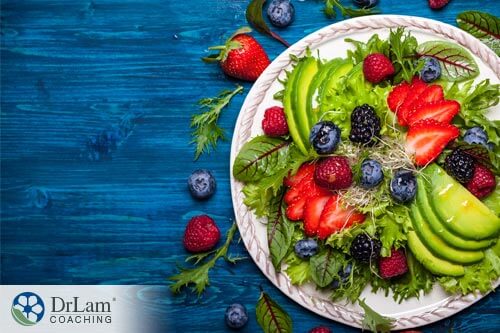 The adrenal fatigue diet is a great option for almost everyone since many people suffer from adrenal fatigue and since it is an all-around healthy diet.
The adrenal fatigue diet is a great option for almost everyone since many people suffer from adrenal fatigue and since it is an all-around healthy diet.
First of all, it is anti-inflammatory in nature. It cuts out many of the most common inflammatory foods and revolves around eating a variety of antioxidant-rich foods that are also nutrient-dense and easy to absorb.
With the adrenal fatigue diet, there are several rules of thumb to follow:
Nutritional supplements can fill in any holes left from eating this diet, which shouldn’t be many. Taking supplements, such as fertility supplements or adrenal supplements, in therapeutic doses to boost certain functions can be very useful if done correctly, but that will require the supervision of an experienced professional.
However, the bulk of the nutritional weight needs to be carried by the foods you eat. Gone are the days when we thought fertility was only about age and luck… the link between eating a healthy diet and improving fertility is becoming more and more apparent.
Another very important point is that the adrenal fatigue diet also really helps with blood sugar stability, as it is a low-glycemic index diet. Whole grains, lean proteins, and healthy fats help to slowly release glucose into the blood, avoiding blood sugar spikes and the subsequent crashes.
This will help a lot with oxidative stress, inflammation, and carbonyl stress – all of which are factors that decrease egg quality. And the high antioxidant content of fresh fruits and vegetables will combat the oxidative stress that has been accumulating.
The adrenal fatigue diet is also great for steady weight loss and achieving your optimal weight. But with weight loss, you want to keep the long-view. No crash dieting, as that can add a lot more stress on your system and usually has a terrible rebound effect. As you eat healthily and begin to move your body, you will lose the weight naturally.
And, of course, it goes without saying that if you’re smoking or drinking alcohol, you’ll want to get support to quit both. You may take up drinking alcohol again, in moderation, but only after you have regained your health and you have achieved your fertility goals. For the time being, it is best to stay away.
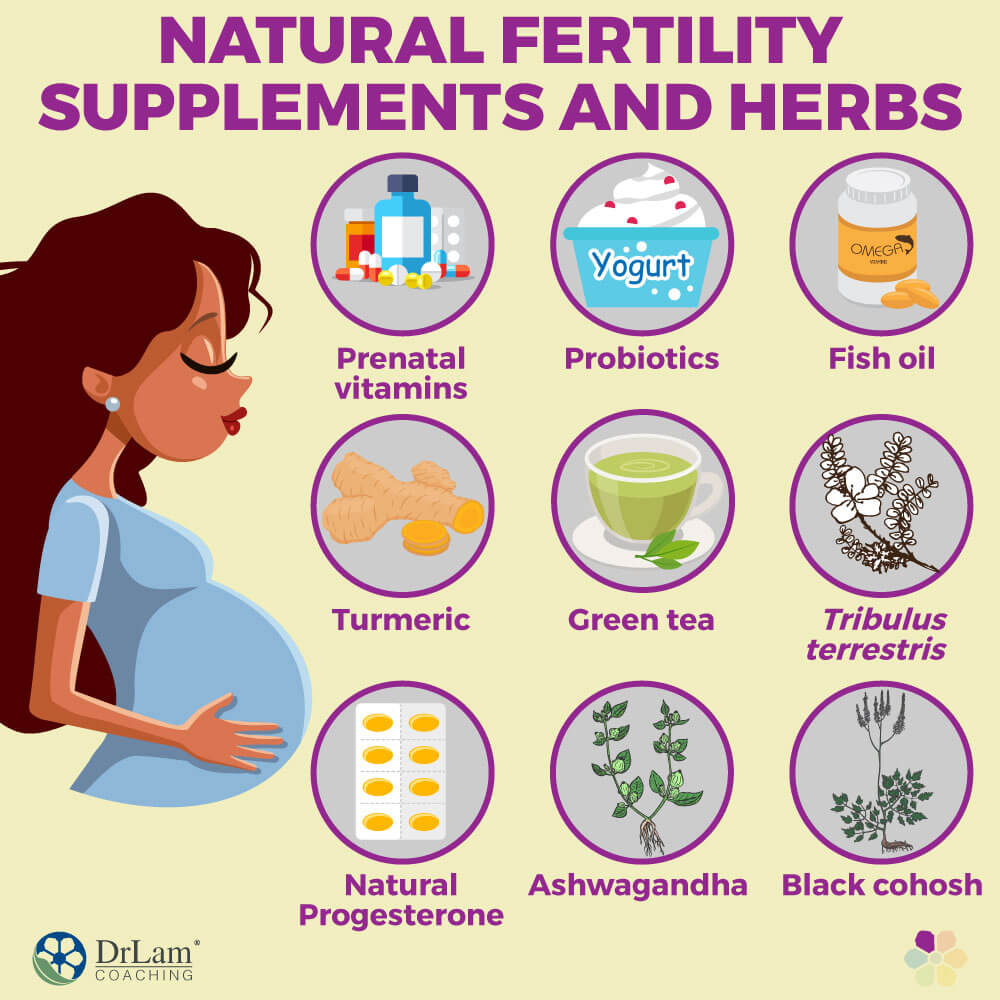
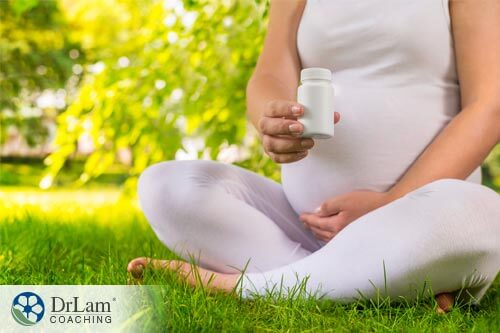 There are a few fertility supplements that all women should take daily, regardless of what other conditions they have or the state of their health, and you should include them in your regiment :
There are a few fertility supplements that all women should take daily, regardless of what other conditions they have or the state of their health, and you should include them in your regiment :
Next, you’ll want to use strong antioxidants and anti-inflammatory herbal tinctures that contain powerful flavonoids. These can include turmeric, green tea, resveratrol (from grape skins), and ginkgo biloba. Withania, Tribulus, and saw palmetto are also good antioxidants.
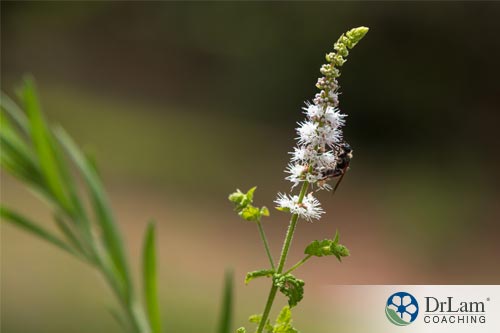 Just because these supplements and herbal tinctures are natural doesn’t mean they are always safe or always made from the best ingredients. The supplier and/or manufacturer of the fertility supplement or herbal tincture is not required to prove the quality of the product. This means it is up to you to verify your supplements are coming from a safe source, are potent, and are not contaminated by toxins in production. Are the ingredients verified through validated methods? Are they free of chemicals and biological contamination? Are the dosages and ratios appropriate for the intended use?
Just because these supplements and herbal tinctures are natural doesn’t mean they are always safe or always made from the best ingredients. The supplier and/or manufacturer of the fertility supplement or herbal tincture is not required to prove the quality of the product. This means it is up to you to verify your supplements are coming from a safe source, are potent, and are not contaminated by toxins in production. Are the ingredients verified through validated methods? Are they free of chemicals and biological contamination? Are the dosages and ratios appropriate for the intended use?
Although some of the herbs and supplements listed are safe to take during pregnancy, most are not recommended for use during pregnancy, especially in early pregnancy. Also, the supplements and tinctures that suit you best will depend on what kind of other therapies you may be using, such as IVF, IUI, or Clomid.
IVF, or in vitro fertilization, is one of the most common assisted reproductive techniques out there. It involves stimulating ovulation in order to retrieve eggs from the ovaries and then fertilizing these eggs with sperm inside a liquid. Once the eggs are fertilized, they undergo embryo culture for a few days and are then inserted into the uterus with the goal of inducing pregnancy.
There are several different supplements that are meant to help with IVF by increasing egg quantity, improving egg quality, increasing endometrial thickness, or improving endometrial receptivity.
Some of the most common supplements used to support IVF are vitamin C, vitamin E, resveratrol, folic acid, biotin, coenzyme Q10, zinc, selenium, omega-3 fatty acids, evening primrose oil, royal jelly, r-alpha lipoic acid, and DHEA. There are several others, and along with the ones already mentioned, they all fall under the same categories that help fertility in general. Mainly antioxidants, essential fatty acids, vitamins, minerals, herbal remedies, and amino acids. Insulin sensitizers, such as apple cider vinegar, myo-inositol, and cinnamon extract can also be helpful, especially for those with insulin resistance, which can cause anovulation.
Whether you’re doing IVF, some other assisted reproductive technique, or trying naturally, the timing of the types of supplements you take should also be coordinated to your cycle. A good herbalist or functional medicine doctor that specializes in fertility will give you fertility supplements and tinctures for each phase of your menstrual cycle.
Your cycle is composed of four phases: the menstrual phase from day 1-5, the follicular phase from day 1-13, the ovulation phase on day 14, and the luteal phase from day 15-28. There may be slight variations from woman to woman, but that’s the general cycle of a healthy female.
During the follicular phase, or the pre-ovulation phase on days 1-14, you’ll do well with estrogen-supporting tinctures, like red clover, hops, fennel, dong quai, alfalfa, and black cohosh.
During the luteal phase, or the post-ovulation phase on days 15-28, you’ll do better with progesterone-supporting tinctures, such as fenugreek, vitex, sarsaparilla, and wild yam.
You’ve probably heard a lot about vitex and wonder if it really is the miracle fertility herb that it is touted to be. Though it is not a cure-all, it has been shown in different studies to help with menstrual and hormonal balance, with PMS, with menopausal symptoms, and with PMDD. Many women do swear by its effectiveness. Vitex is a natural compound with progestational properties like natural progesterone. It can be thought of as a “weak” progesterone. Dosage is 1000 mg a day first thing in the morning, as taking it in the morning helps to maximize your hormone receptors’ receptivity to it. As a 1:1 tincture, you can take 1 ml a day.
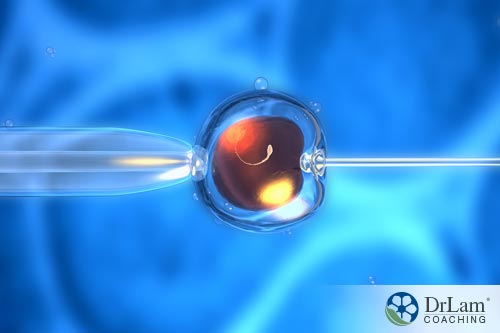 Our final precaution is to be careful with the shotgun approach to supplementation, even if it is for fertility supplements. Taking many different supplements at the same time, hoping some random combination will work, can backfire, and add more stress on your adrenal glands and your NEM’s hormonal response.
Our final precaution is to be careful with the shotgun approach to supplementation, even if it is for fertility supplements. Taking many different supplements at the same time, hoping some random combination will work, can backfire, and add more stress on your adrenal glands and your NEM’s hormonal response.
This is why it is important to do your research, to have a good understanding of your current state of health, to know what your exact goals are, and to understand what types of fertility therapies are good for you. Then, once you have compiled all of this information, you can embark on the complicated mission of combining different fertility supplements with more confidence. And, as always, stay aware of how your body reacts and what your fertility specialist recommends.